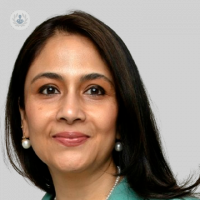Importance of pre-conceptual health/pre pregnancy care: Impact on reproductive health
Written in association with:There has been a reported decline in global reproductive health. Preconception/pre pregnancy health plays a vital role in ensuring an optimistic path to parenthood. For individuals or couples planning to conceive or evaluating their reproductive health, understanding fertility through preconception testing and specialist care can help identify potential barriers and optimise reproductive outcomes.

Pre-conception/pre-pregnancy testing
A pre-conceptual visit with your consultant involves evaluating various factors that influence reproductive health, including diet, body mass index, nutrition, exercise, stress, hormonal levels, ovarian reserve, and male sperm health. For women, tests such as blood work to assess hormones like follicle-stimulating hormone (FSH) and anti-Müllerian hormone (AMH) provide brief insights into egg quantity and overall ovarian function.
Additionally, a pelvic ultrasound examination may help detect structural abnormalities, such as fibroids or polyps, which could impact conception. For men, semen analysis assesses sperm count, motility, and morphology. Combined, these evaluations may help obtain a clearer picture of both partners' reproductive health. Specialist care is instrumental in interpreting these results and creating a personalised care plan.
Fertility specialists can address specific concerns, such as irregular cycles, ovulation issues, or underlying conditions like polycystic ovary syndrome (PCOS) or endometriosis. For individuals with a history of genetic disorders, advanced genetic testing and counseling are often recommended. Pregnancy losses can be devastating for individuals and couples, pre-pregnancy care may optimise the pregnancy journey. Early intervention can significantly improve the likelihood of successful conception while also reducing risks during pregnancy.
In addition to diagnostic testing, specialists provide tailored guidance on lifestyle factors that influence fertility, including nutrition, exercise, stress management, and avoiding harmful substances. Preconception care may also involve addressing chronic conditions like diabetes or thyroid disorders to ensure optimal health before pregnancy.
Understanding fertility through preconception testing is particularly valuable in today’s world, where many choose to delay parenthood due to career or personal reasons. By proactively identifying potential challenges, individuals and couples can make informed decisions about their reproductive health and explore options such as fertility preservation or assisted reproductive technologies like in-vitro fertilisation (IVF).
Partnering with a fertility specialist ensures access to expert advice and cutting-edge treatments, empowering you to take charge of your journey to parenthood with confidence and clarity.
Publication:
Seshadri S, Oakeshott P, Nelson-Piercy C, Chappell LC. Prepregnancy care. BMJ. 2012 May 31;344:e3467. doi: 10.1136/bmj.e3467. PMID: 22654073.


